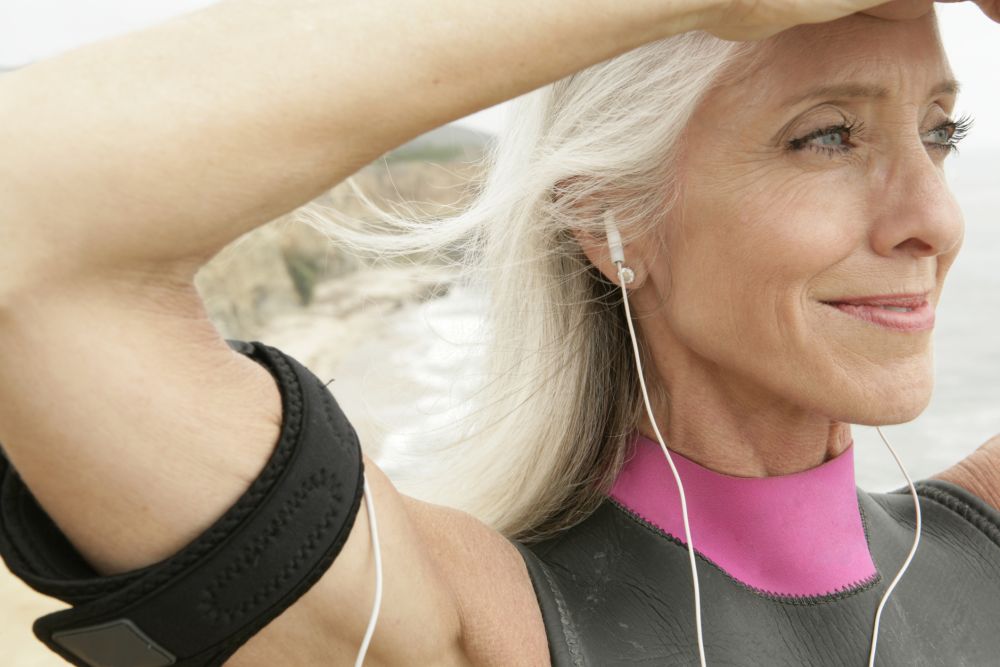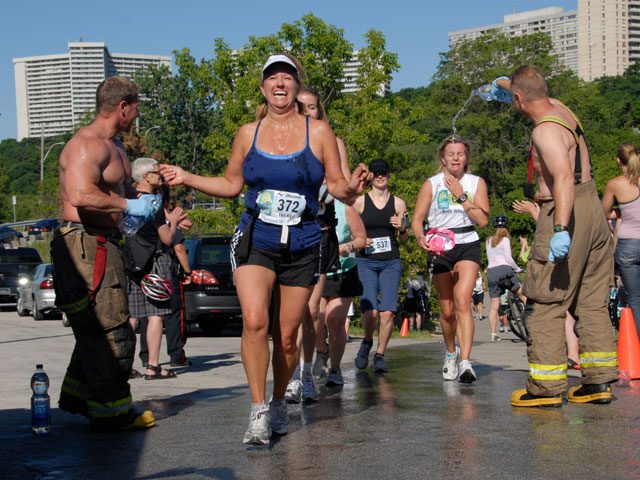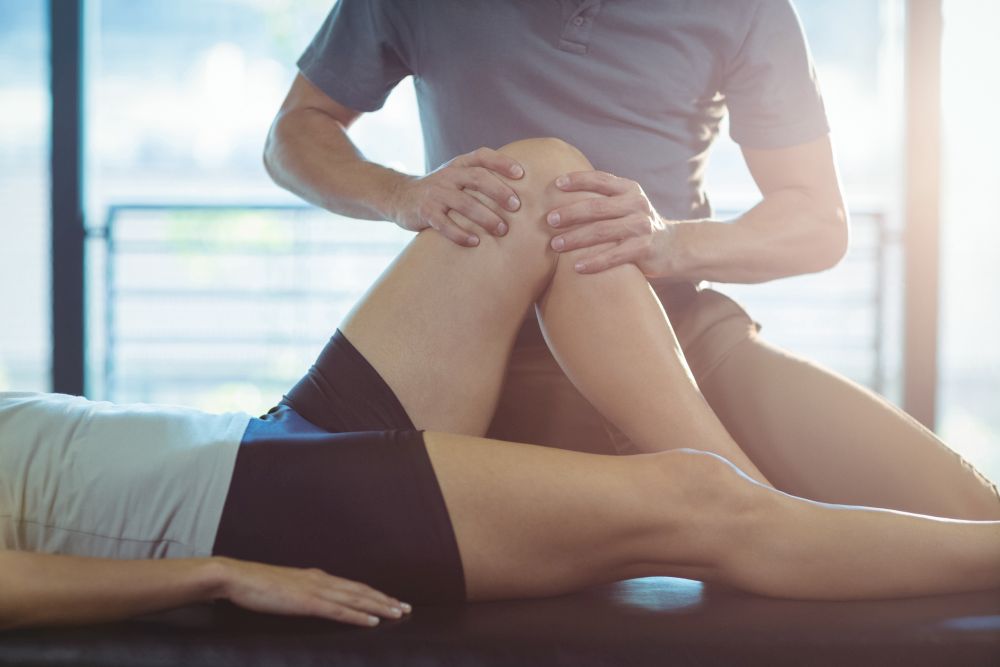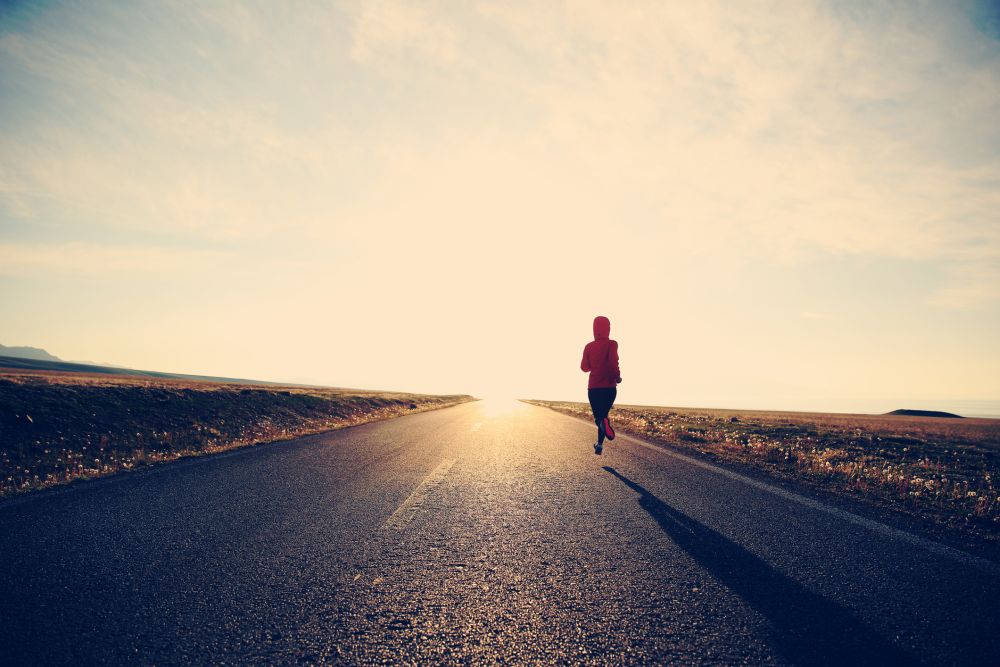Running and menopause: what you need to know
How "the change" can affect your running, and how running can help with symptoms


With more and more people taking up running, many masters-level women runners wonder how menopause is likely to affect their running. Will it make me slower? (Possibly, but not necessarily.) More tired? (Same.) What should I expect? And are the changes I’m noticing attributable to menopause, or something else? Will I need to stop exercising once menopause hits?
RELATED: Shedding pounds leads to bone loss, says study
The average age to reach menopause is 51 in the US, but women may start to notice changes in their cycle and symptoms of perimenopause as early as their early 40s. These may include unusually heavy periods (or skipped periods), fatigue, moodiness, hot flashes, night sweats, insomnia, and weight gain. Some women may experience urinary incontinence.

Though they all sound unpleasant, it’s important to remember that the symptoms, though wide-ranging, are not universal. Some women breeze through menopause with barely a hot flash, while others may be challenged daily to manage their symptoms. Some women start to see their doctor more frequently than before. Others may start exploring alternative therapies such as acupuncture or naturopathy in the quest for better overall health and qualify of life.
Thankfully, running can help in a variety of ways.
What do the symptoms mean?
The changes associated with menopause and perimenopause are due to the body’s reduced estrogen production at the end of a woman’s reproductive capacity. For many women, the loss of her period is liberating (no more jamming tampons into your shorts pocket). For others, it’s the only benefit to a condition they associate with misery and discomfort. Still, running may provide at least a temporary refuge from symptoms, and some women find they want to run more for this reason.

Reduced sex hormone production also leads the body to reduce its natural production of melatonin, which induces sleep. This can lead to poor sleep, and the body’s reduced ability to regulate core temperature can lead to cycles of sleeping/waking and sweats/chills.
Luckily, several studies have found that exercise actually reduces hot flashes, and some experts have suggested that women runners are less bothered by hot flashes because they are accustomed to sweating and feeling warm during exertion. There is lots of support for the notion that exercise leads to better sleep, provided it’s done early in the day.
Dr. Jean Marmoreo is a Toronto midlife health specialist, a five-time Boston Marathon age-group winner, and has held the Canadian record in the women’s 70-74 category since 2013. Her group Jean’s Marines trained over 1,000 mostly middle-aged women to run a marathon over an eight-year period. “There is nothing like company in the sharing and laughing at the chore and litany of symptoms and how to master them,” she says about running and menopause.
Dressing in layers is always a good idea, in case you do start to feel overheated during a run. A cold towel used as a head wrap and compression clothing may also be helpful.

Women who have run competitively since adolescence may find the change hardest to deal with, as decreasing hormones lead to reduced muscle mass. Women who are taking up running for the first time in midlife can really benefit from the increased activity, in terms of their overall fitness, weight control, and bone density maintenance, especially if they incorporate hill repeats and plyometrics (jumping drills). (Regular running is not sufficiently weight-bearing to maintain bone density past menopause, and all runners, male or female, can benefit from strength workouts and cross-training.)
Though tendons and ligaments may become less stretchy with menopause, there is certainly no medical reason to avoid exercise for this reason, and strength training can be beneficial here as well, since strong muscles means less risk of injury to connective tissues.

What about HRT?
Hormone replacement therapy can certainly mitigate many of menopause’s more unpleasant symptoms, but it is not without risk. HRT has been shown to slightly increase the risk of breast cancer, heart attack, and stroke. If your symptoms are severe, a conversation with your doctor should help you make an informed decision about HRT. “Less than 25 per cent of women will have severe enough symptoms that HRT is warranted,” says Marmoreo, “but some will. That is where you and your physician have the discussion about options.”
Why am I so moody?
The mood swings associated with menopause, unlike those associated with PMS, do not disappear once your period starts, at least not once your periods themselves disappear. The good news is that there is now overwhelming evidence of the beneficial effect of running on mood and mental health–another reason to embrace running in midlife.
And finally, calcium and vitamin D (the “sunshine vitamin”) are particularly important during menopause. Vitamin D supplementation is usually necessary in winter, when getting enough sunlight can be difficult, and it’s important for maximizing calcium absorption, which, in turn, is essential for maintaining bone density. One way to maximize calcium is to eat a diet rich in dark green leafy vegetables (such as broccoli, rapini, kale, spinach and Swiss chard).
“The grit they all mustered for that goal [the marathon], and the pleasure it brought them to achieve it,” says Marmoreo, “it never ceased to amaze me.”
Of course, you don’t have to train for a marathon to benefit from running, at any age. And the friendships and positive health effects of running for women in midlife will likely outlast their symptoms.


